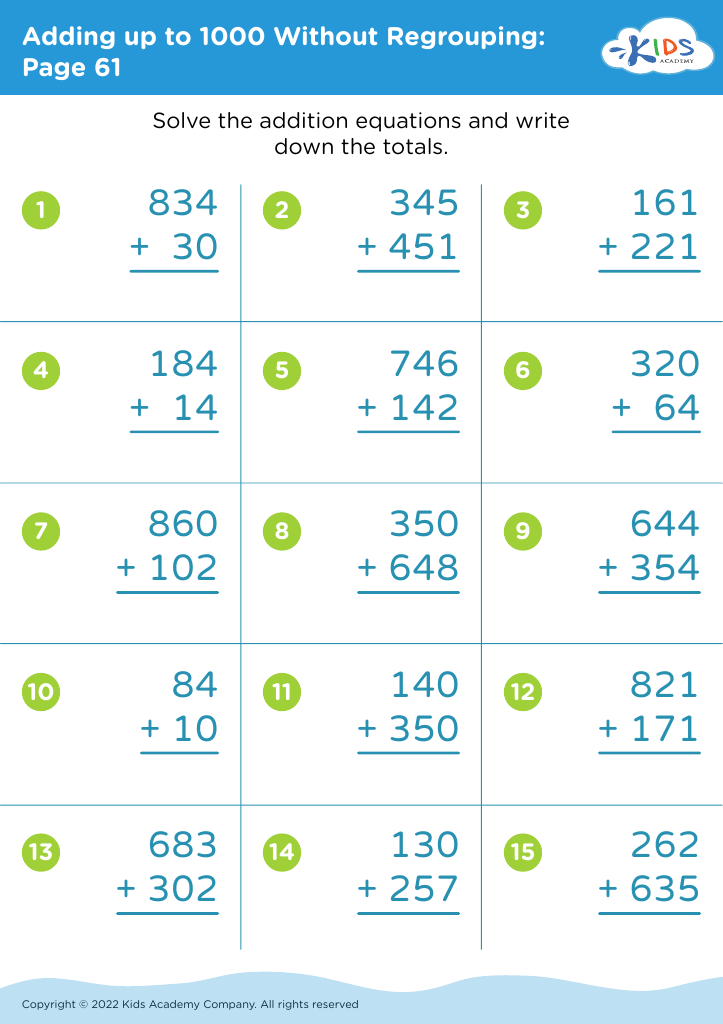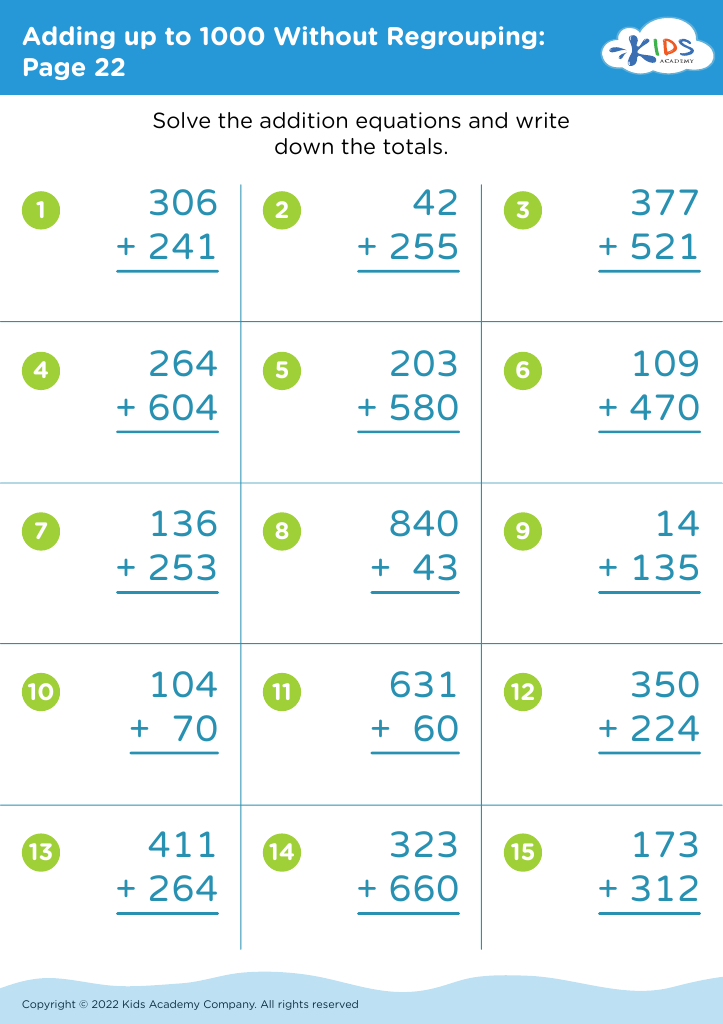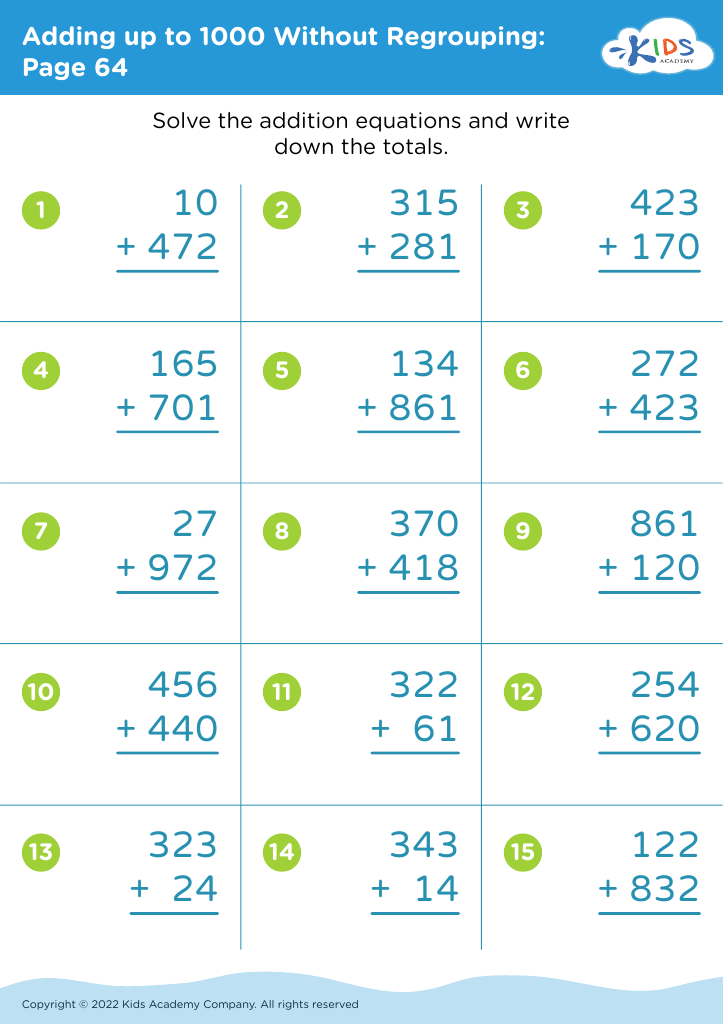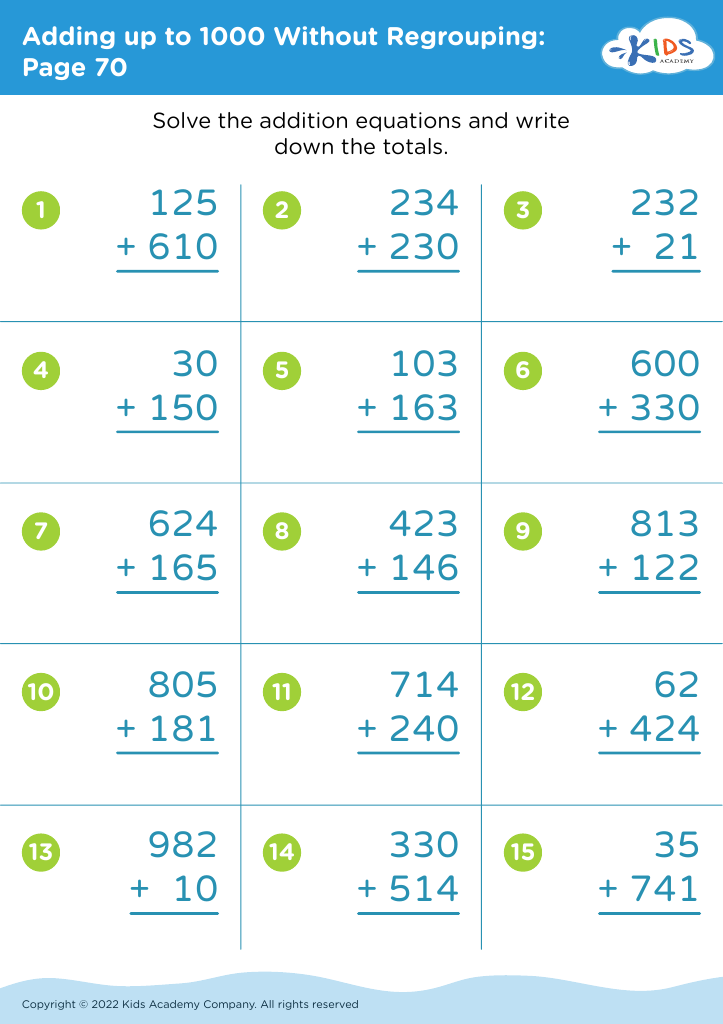Counting skills Adding up to 1000 Without Regrouping Worksheets for Ages 4-8
10 filtered results
-
From - To
Enhance your child’s counting skills with our "Counting Skills: Adding Up to 1000 Without Regrouping" worksheets, perfect for ages 4-8. These printable resources make learning fun and engaging, focusing on strengthening addition concepts while avoiding regrouping challenges. Each worksheet is carefully designed to build confidence and precision in young learners. By integrating visual aids and hands-on activities, children develop a solid foundation in basic math skills. Ideal for both classroom use and at-home practice, these worksheets support early math education, preparing kids for future success. Spark a love for math with our easy-to-follow and enjoyable worksheets!
Counting skills and the ability to add up to 1000 without regrouping for children aged 4-8 are critical foundational math skills. Firstly, mastering counting ensures that young children understand the sequencing and value of numbers, providing the groundwork for more advanced mathematical concepts. At this age, children develop their cognitive abilities rapidly, and introducing them to counting and addition builds their numerical fluency, allowing them to manipulate and understand numbers more intuitively.
Adding without regrouping involves sums that don't require carrying over numbers, making it a simpler step before tackling more complex problems. This helps children to build confidence as they are able to solve problems successfully. Confidence in their mathematical abilities can instill a positive attitude towards learning and reduce math anxiety.
Moreover, learning these skills promotes both analytical and logical thinking. It encourages children to recognize patterns and relationships between numbers, enhancing their problem-solving skills. These early math capabilities are not only critical for academic success but also essential for daily activities requiring basic math, such as measuring ingredients in cooking or handling money.
In conclusion, parents and teachers should prioritize counting skills and adding up to 1000 without regrouping as they form the bedrock of future mathematical understanding and practical life skills, fostering a lifelong appreciation for numeracy.




















